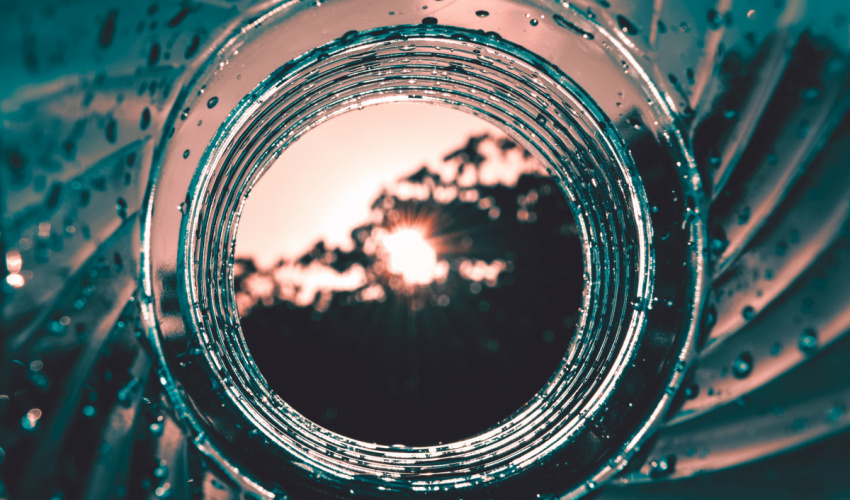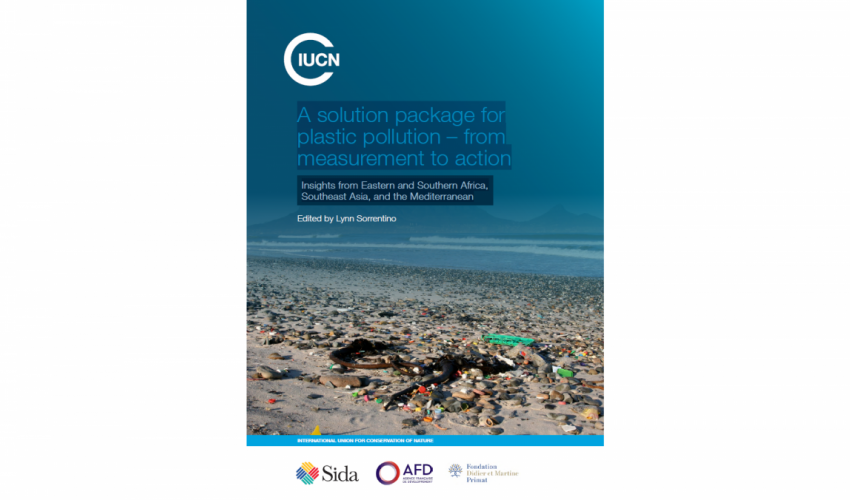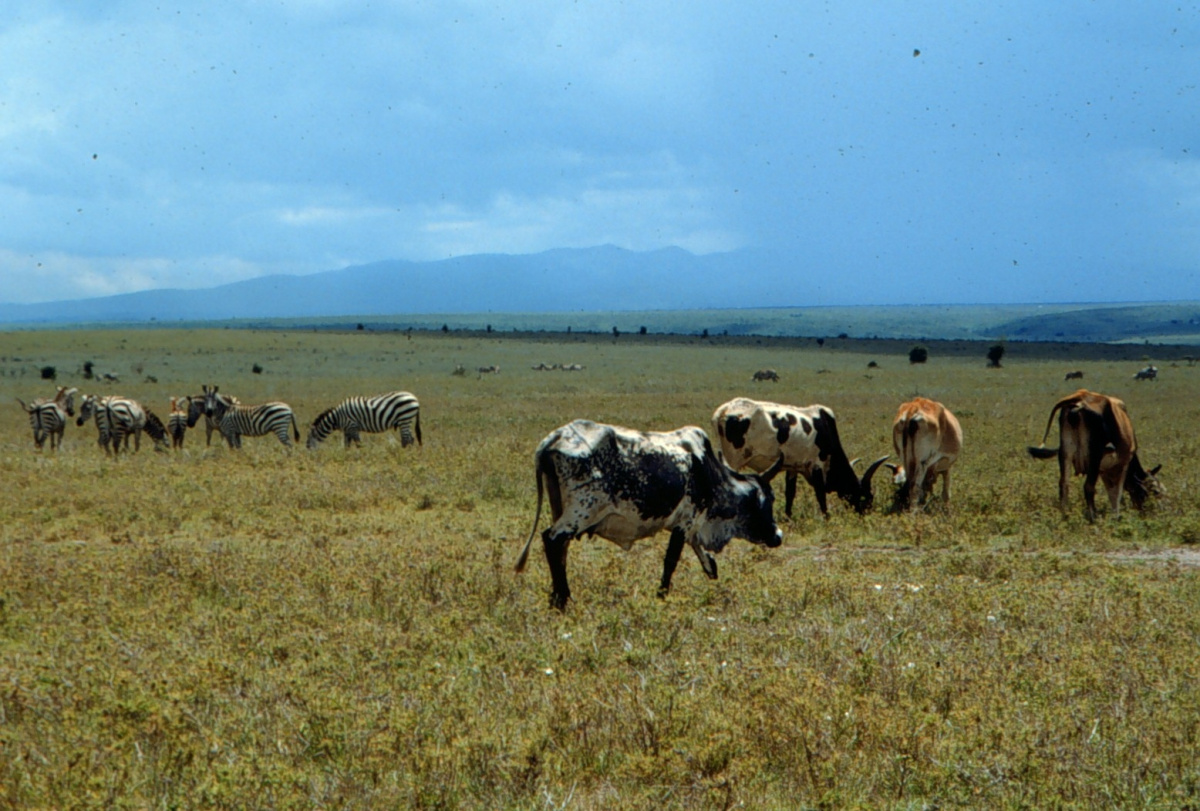A package of solutions for plastic pollution – from measurement to action: Insights from Eastern and Southern Africa, Southeast Asia, and the Mediterranean
For national governments to better understand plastic waste and leakage, as well as solutions to these problems, this new IUCN publication has packaged the lessons learned and data presented from its plastic pollution hotspotting projects in three multi-nation regions of the world.
Our new publication outlines a holistic solution package and demonstrates how plastic waste and leakage were measured, where they were found, what sectors and applications are the biggest causes, what waste management interventions were considered, and then delineates policy and economic linkages as well.
It provides a synthesis of the research findings from eight plastic pollution hotspotting case studies undertaken in Kenya, Menorca (Spain), Mozambique, Republic of Cyprus, South Africa, Thailand, United Republic of Tanzania, and Viet Nam.
Driving change through informed decision making via multi-stakeholder dialogues has been the approach we have used to address the impact of plastic leaking into the marine environment. Sharing knowledge, building human capacity, informing and guiding policy, and engaging with businesses are the four pillars that IUCN uses to address the crisis at the critical points where interventions are needed most.” – Janaka De Silva, Senior Programme Officer, Ocean Team, IUCN
Eight case studies from Africa, the Mediterranean, and Asia
The newest IUCN “Close the Plastic Tap” programme publication, this document showcases eight case studies from Africa, the Mediterranean, and Asia.. From local to global, plastic pollution solutions for a healthy ocean are available, and some of these are presented here for consideration.
The goal of this report is to inspire action that will reduce, and possibly eliminate, plastic pollution. There are four objectives:
1) draw conclusions from the results of eight plastic pollution hotspotting assessments;
2) recommend actions, instruments, and interventions;
3) discuss the findings and recommendations of policy and economic research; and
4) share the methodologies, with the aim that others can replicate the model.
Treaties, Resolutions, Tools, and Action
Plastic waste and leakage to the environment is being highlighted with the recent UNEP Resolution 5/14 to develop an international legally binding instrument on plastic pollution, including in the marine environment. The news of 2 March 2022 of the endorsement by 175 countries of the UN Environment Assembly Resolution, “End plastic pollution: Towards an international legally binding instrument” generated new hope in the global fight against plastic pollution – and this publication can guide nations who wish to get a jump start on managing their plastic waste ahead of the legally binding treaty. The social, environmental, and economic impacts of plastic pollution demand that we act to ensure the future health of the ocean.
The methodology used in this research is one of more than thirty that have emerged in the past years. As plastic pollution research continues, there is a clear need for harmonised and interoperable methodologies to ensure that results are actionable and useful for policy makers and other stakeholders. The results presented here build upon previous research by IUCN and others but much more primary research is needed. It aims to link the results from the application of the UNEP/ IUCN National Guidance for Plastic Pollution Hotspotting and Shaping Action (UNEP/IUCN, 2020) to policy and economic research, to share how IUCN created enabling environments for action, and to provide an overview of tools, methods, and interventions to guide decision makers.
The variety of tools and knowledge products that were built by the three projects provided direction to policymakers, manufacturers, and the waste management sector. Tools also included assessments of plastic pollution, policy studies, circular economy models, private sector engagement, and economic guidance. IUCN’s in-depth analyses of regulatory tools such as Extended Producer Responsibility to identify gaps and facilitate the exchange of best practices are being cross-linked with the on-going scientific and economic research to show how to intervene, and at which points, to generate the most effective actions. This publication is now newly energised with the UNEA5.2 Resolution 5/14, and it is also beneficial in support of the IUCN World Conservation Congress outcome, the Union’s Resolution 019 that calls for stopping the global plastic pollution crisis in marine environments by 2030.
More information
Rapidly increasing levels of plastic pollution represent a serious problem at a global scale, negatively impacting the environmental, social and economic dimensions of sustainable development. For nearly a decade, IUCN has worked on the problem of marine plastic pollution and its consequences, and this publication ties together three regions of work sponsored by Sida, AFD, and the Primat Foundation.
Our new report: A solution package for plastic pollution – from measurement to action
National Guidance for Plastic Pollution Hotspotting and Shaping Action
Acknowledgements and Support
This report is the result of three IUCN-led projects which were generously supported by
 - SIDA the Swedish International Development Cooperation Agency (Sida) for the Marine Plastics and Coastal Communities project (MARPLASTICCs) in Kenya, Mozambique, and South Africa;
- SIDA the Swedish International Development Cooperation Agency (Sida) for the Marine Plastics and Coastal Communities project (MARPLASTICCs) in Kenya, Mozambique, and South Africa;
 - AFD Agence Française de Développement (AFD) for the PlastiCoCo project in Tanzania;
- AFD Agence Française de Développement (AFD) for the PlastiCoCo project in Tanzania;
 - Fondation Primat and the Didier and Martine Primat Foundation for the Plastic Waste Free Islands – Mediterranean project in the Republic of Cyprus and Menorca, Spain.
- Fondation Primat and the Didier and Martine Primat Foundation for the Plastic Waste Free Islands – Mediterranean project in the Republic of Cyprus and Menorca, Spain.





